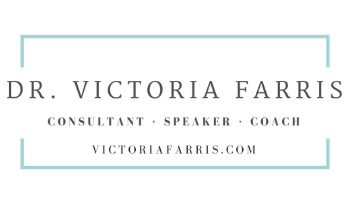Performance doesn’t equal regulation.
We can’t properly regulate our nervous system when we’re disconnected from our humanity. And when we’re in the role of performing, we’re disconnected from our humanity. Whether the need to perform is rooted in oppression or stereotype threat, or it’s a response from deep wounds or fears, any time we’re performing a role we are not living in our fullness. We’re disconnected from ourselves and our humanity.
I’ve been working on this recently with my coach because real talk: we all benefit from coaching! And as a side note, if your coach, therapist, healer, etc. doesn’t also have a coach, therapist, healer, etc., maybe they shouldn’t be your coach?! Yikes! But also… 👀👀
But anyway, I’ve been working with my coach around this recently because I’ve been struggling with staying regulated as a mother. Honestly, sometimes I find all of the juggling and responsibilities to be overwhelming AF! Through my coaching, I’ve realized that this is in large part because I’m trying to perform the role of “good mother” that I’ve been thinking I need to play.
But what I know is that every time I’m trying to do something the “right way” it means that I also hold the belief that the way that comes most naturally to me (or the way that I’ve been doing it) is inherently wrong.
Woah.
And what if being a “good mother” just means that we are a mother who loves her people hard and does her best? And what if being a “good mother” is really just about modeling how to be your whole self and deeply present? And what if being a “good mother” is really just being a mother?
As soon as I was able to release this self-judgment and belief that “good mother” means something separate from who I am, I found deep groundedness in my parenting. And instantly we started laughing more, talking more, connecting more, and even getting all of our chores done! But we did it while singing karaoke because that’s the kind of chore doing that works for me!
This doesn’t only apply to motherhood. I’ve done this in the workplace when I was performing a specific type of leadership, and in my family when I’ve performed being the perfect child. So many spaces and roles where I’ve told myself that being me is wrong and instead I need to play a role. But the tradeoff is that I am never fully present, fully embodied, and rooted in self-love.
Performance doesn’t allow for deep embodiment and regulation.
And what the world needs isn’t another “leader” or “good mother” or “perfect child” the world needs YOU. Exactly as you are with all your weird quirks and silliness. Your deep thoughts and bad jokes and your big gorgeous feelings. The world needs you!
Regulation is essential to effective leadership, allyship, relationships, and so much more. When we are able to ground fully into ourselves and calm our nervous systems we have the potential for authenticity and presence.
Not only does the ability to regulate and show up in our fullness allow each of us to have more robust, connected, and full lives, it is also essential to our anti-racist work! If we cannot regulate our bodies effectively, we cannot show up with humility, navigate mistakes, or receive difficult feedback or context.
And I want to add a wildly important caveat– the ability to know that it is safe to express oneself authentically is deeply rooted in privilege. For many Black and Indigenous folks, other people of color, trans and gender-expansive folks, disabled folks, and more it can be dangerous to show up authentically. Black trans women have a life expectancy of 35 years old. There are literal life and death impacts for some folks living authentically and without performance.
And– for those of us with privilege and with agency in an organization (which is anyone who contributes to the culture, btw!) we play a crucial role in whether or not our BIPOC, trans, disabled, and other marginalized colleagues are able to cultivate a sense of safety in their bodies through the culture of the space. When microaggressions or over oppression is present, it is difficult to feel a sense of safety. When we are disregulated it also sends the message to everyone around us that we’re not steady or safe.
We don’t create a culture of belonging and inclusion because we talk about it or because we wish to, we create a culture of belonging and inclusion when we learn to regulate ourselves, to unpack our bias and judgment, and become consciously aware of the subconscious patterns that we hold and the harm that they inflict. We cultivate belonging when we practice radical self-accountability, self-compassion, and deep commitment.
And each of us deserves to that.
In solidarity,
Victoria
P.S. – If you’re reading this and feeling called to coaching and healing, let’s hop on a call. I’m currently offering a handful of one on one containers for healing, support, release, and reprogramming. I’d love to support you!
P.P.S. – If you are a white woman or a human who was socialized into white girlhood I am co-facilitating an amazing mini-series with Dr. Kathy Obear, Unpacking White Womanhood and we’d love for you to join!

